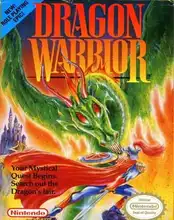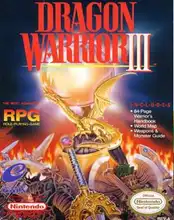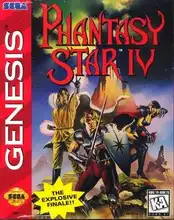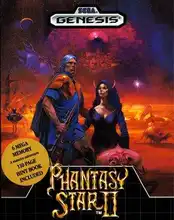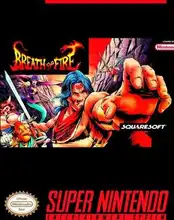Step back from the frantic pace of modern gaming. In a world obsessed with lightning-fast reflexes and split-second decisions, there's a timeless charm in slowing down, taking a breath, and carefully plotting your next move. This is the enduring appeal of turn-based games.
For many of us who grew up with pixelated adventures and floppy disk treasures, turn-based mechanics weren't just a genre – they were a way of life. They offered a different kind of challenge, one that rewarded patience, foresight, and strategic thinking over twitch reflexes.
Let's dive into why these classics still hold a special place in our hearts and explore some gems you might want to revisit or discover for the first time.
What Makes Turn-Based Games So Special?
Unlike their real-time counterparts, turn-based games give you space to think. Whether you're commanding an army, navigating a dungeon, or building an empire, you have unlimited time to analyze the situation, weigh your options, and execute your plan.
This deliberate pace offers several unique benefits:
- Deep Strategy: Without the pressure of real-time action, developers can create incredibly complex systems. Every unit placement, spell cast, or city upgrade feels meaningful.
- Accessibility: You don't need lightning-fast fingers to excel. Success comes from your brain, making these games welcoming to players of all ages and physical abilities.
- Relaxing Yet Engaging: The lack of constant urgency can be surprisingly relaxing, perfect for unwinding. Yet, the strategic depth keeps your mind fully engaged, leading to that classic "one more turn" feeling.
- Focus on Planning: It's less about reacting and more about anticipating. You learn to read the digital battlefield or dungeon map, predict enemy actions, and set up devastating combos or impenetrable defenses.
This calculated approach is a stark contrast to the high-octane energy of many modern titles, offering a refreshing change of pace that many retro gamers appreciate.
A Trip Down Memory Lane: Classic Retro Turn-Based Gems
The golden age of gaming delivered some absolute masterpieces in the turn-based realm, spanning various genres. Let's revisit a few iconic examples that defined the era.
RPGs: Epic Stories, Strategic Combat
Turn-based combat was the backbone of many classic role-playing games, allowing players to savor character progression and narrative without getting bogged down by complex real-time controls during battles.
- Classic JRPGs: Titles like the early Final Fantasy games, Dragon Quest, and Chrono Trigger (while some ports came later, their roots are deep in the retro era) perfected the party-based, turn-order combat system. They drew you in with compelling stories and memorable characters, making each strategic battle feel like a crucial part of the journey.
- Western RPGs: Games like Fallout 1 and Fallout 2 utilized a brilliant turn-based system (specifically, the S.P.E.C.I.A.L. system with Action Points) for tactical combat encounters. This allowed for precise aiming, strategic movement, and the use of various skills, making every fight a puzzle to solve.
Strategy & Tactics: Mastering the Grid
From grand empires to squad-level skirmishes, turn-based mechanics provided the perfect framework for strategic dominance.
- X-COM: UFO Defense (UFO: Enemy Unknown): A true legend. This game blended base management with intense, squad-based turn-based tactical combat against alien invaders. The tension of moving your soldiers one by one, never knowing what was around the next corner, was unparalleled.
- Civilization Series (Early Entries): Sid Meier's Civilization practically invented the "one more turn" addiction. Building an empire from the Stone Age to the Space Age, managing cities, research, diplomacy, and warfare, all turn by turn, offered endless replayability.
- Heroes of Might and Magic Series: Combining strategic map exploration and resource management with tactical, grid-based combat between fantasy creatures. These games were perfect for long afternoons spent conquering castles and leveling up heroes.
- Tactical Favorites: Games like Advance Wars (Game Boy Advance, though rooted in older Famicom Wars titles), Worms (the original 2D games were turn-based artillery fun), and even older PC tactical games like Panzer General or Fantasy General offered focused, turn-by-turn combat on grids or hex maps.
Other Cool Turn-Based Stuff
The mechanic wasn't limited to just standard RPGs or strategy games.
- Tabletop Adaptations: Many digital games captured the feel of tabletop board games or miniatures games, like Hero Quest or Space Crusade, bringing that tactile, turn-based feel to the computer screen.
These games weren't just mechanically sound; they were often packed with personality, challenging AI, and memorable moments created by your own strategic choices (or blunders!).
Why We Still Love Them Today
Even with modern gaming's advancements, the appeal of retro turn-based titles endures. They offer a nostalgic trip back to simpler times, yes, but also a fundamentally different, often deeper, gameplay experience than many contemporary blockbusters.
They remind us that sometimes, the most exciting moments in gaming come not from split-second reactions, but from carefully considered plans unfolding turn by turn. The indie scene also keeps the spirit alive with modern throwbacks and innovative takes on turn-based design.
Finding and Playing Retro Turn-Based Games Today
Luckily, revisiting these classics is easier than ever:
- GOG.com (Good Old Games): A fantastic resource for DRM-free versions of many classic PC turn-based games, often pre-configured to run on modern systems.
- DOSBox: An essential emulator for playing old DOS-based turn-based PC games that aren't available commercially.
- Archive.org: The Internet Archive has a vast collection of playable-in-browser classic PC games, including many turn-based titles.
- Emulators: For console turn-based RPGs and strategy games, emulators for systems like SNES, Genesis, PlayStation 1, and Game Boy Advance are widely available.
So dust off those strategic minds, fire up a classic, and get ready for just one more turn.
FAQ: Turn-Based vs. Real-Time
The classic debate! Here's a quick look at the common points:
- What's the main difference? Real-time games happen continuously, requiring quick reactions. Turn-based games divide action into discrete turns, giving players time to think.
- Is one better than the other? No, it's subjective and depends on the genre and player preference. Real-time excels at testing reflexes and multitasking; turn-based excels at complex strategy and deliberate planning.
- Why might someone prefer turn-based? Players often prefer the focus on strategy over speed, the ability to pause and think, and find them less stressful or overwhelming than fast-paced real-time games, especially as they get older.
- Are there games that blend them? Yes, some games use "real-time with pause" systems (like Baldur's Gate) or mix turn-based combat with real-time exploration.
Whether you're a seasoned general, a master tactician, or a dungeon-crawling hero, the world of turn-based games offers a rich, rewarding experience that continues to stand the test of time.
What are your favorite retro turn-based classics? Share them in the comments below!

